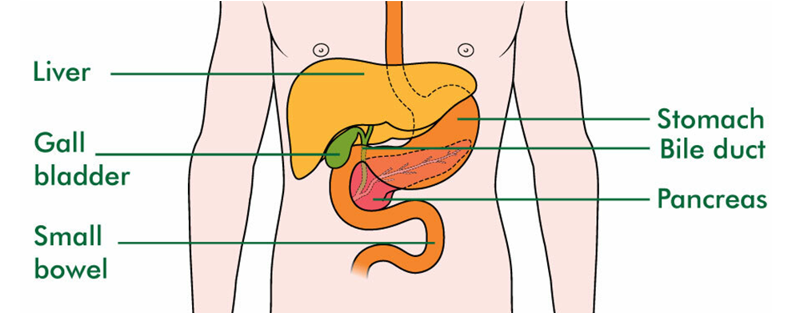Around 7,000 people are diagnosed with stomach (gastric) cancer in the UK each year.
Stomach cancer can start anywhere inside the stomach or stomach wall and your treatment depends on where in the stomach the cancer starts.
There are different types but this section is about adenocarcinoma, which is the most common type and accounts for 95% of all stomach cancers. Adenocarcinoma starts in the glandular cells of the stomach lining.
Less common cancers that can start in the stomach include:
- soft tissue sarcomas, including gastrointestinal stromal tumours (GISTs)
- lymphomas, such as mucosa associated lymphoid tissue (MALT) lymphomas
- carcinoid tumours
Meet the Gastrointestinal (GI) team.
Am I at risk?
The exact cause of stomach cancer is unknown. However, your risk of developing stomach cancer can depend on many factors, the most common of which are outlined below:
- Gender
- Age
- Helicobacter pylori (H. pylori) infection (a stomach infection that causes inflammation of the stomach lining)
- Smoking
- Diet
- Being overweight
- Stomach conditions
- Somebody in your immediate family has had stomach cancer
For more information on the risk factors for stomach cancer, please follow this link.
Symptoms of stomach cancer
Symptoms of early stomach cancer can be similar to the symptoms of other conditions, such as stomach ulcers. The most common systems of stomach cancer are:
- heartburn or indigestion that does not go away
- burping a lot
- loss of appetite
- feeling full after eating only a small amount
- weight loss
Other possible symptoms are:
- pain or swelling in the upper tummy (abdomen) area
- being sick
- difficulty swallowing
- black poo (stools)
- feeling tired or breathless
- having hiccups a lot
For more information on the symptoms of stomach cancer, please follow this link.
Patient information
For more information from Macmillan regarding stomach cancer, please follow this link.
For more information from Cancer Research UK regarding stomach cancer, please follow this link.
